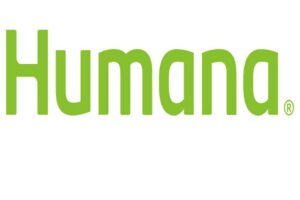
After an 8-yearlong battle, the insurance giant Humana agreed to pay $90 million to settle claims that it violated the False Claims Act when it submitted fraudulent bids for Medicare prescription drugs contracts. The allegations claim that by misrepresenting the value of its Part D drug plan, also known as the “Walmart Plan,” Humana decreased its costs under the contract relative to the payments it received from the government and profited significantly as a result.
By law, insurance companies must offer plans that cover a minimum required portion of drug costs, with the government and Medicare beneficiaries covering the rest, according to the release. Insurance companies are then required to submit bids in which they report the benefits they propose to cover and confirm the ones that meet Part D’s minimum coverage, the release states.
The lawsuit arose out of allegations made by whistleblower and former actuary for Humana, Steven Scott. Scott’s complaint claims that the insurance giant inflated its bids to the government on an unsupported basis solely for the purpose of generating profit.
According to Scott, Humana accurately predicted the costs for the Walmart Plan but instead decided to base its bids off of unreasonable assumptions. “Although Humana asserted in court documents that the predictions underlying its bids were merely estimates about future behavior, they worked in Humana’s favor 100% of the time over seven years and for 245 bids,” Edward Arens of Phillips & Cohen, one of Scott’s attorneys, said in a statement. “The odds that a big insurer would ‘miss’ on an important assumption in the same way that many times in a row are too small to measure.”
According to Scott, Humana kept two sets of books for the purpose of valuing its drug plan. One was used to report the actuarial value of the Walmart Plan to CMS and “justify the award of the contract, “while the other was used to set Humana’s own internal operating budget, Scott alleged. Scott’s attorneys stated that Humana’s internal assumptions proved accurate every year while the underlying bids were “wildly off and always in Humana’s favor, benefiting the insurance company by hundreds of millions of dollars.”
Humana’s alleged illegal practice ranged from 2011 to 2017 in which the company reportedly generated $84 million in additional profit. “The Part D program depends on insurance companies paying their minimum share of drug costs. … Humana shirked its responsibility by telling the government that its plan would cover drug costs that Humana did not actually plan to cover. Our complaint detailed how the government and beneficiaries were left with paying tens of millions of dollars more than Congress intended for years, while Humana pocketed the money as ‘savings,’” Claire Sylvia, a whistleblower attorney who filed the case, said in the release.
In a statement, Humana says it “firmly believes that the actuarial assumptions in its prescription drug plan were reasonable and in full compliance with all laws and regulatory requirements, and that the plaintiff’s claims in the case are without merit. After a thorough investigation into the allegations, the US Department of Justice chose not to intervene in the case. While we are confident in our position and expected to prevail at trial, we have decided to enter into a settlement agreement without admitting any wrongdoing to avoid the uncertainty, distraction, inconvenience, and expense of a lengthy jury trial.” ![]()
Jacob Horowitz is a contributing editor at Compliance Chief 360°

